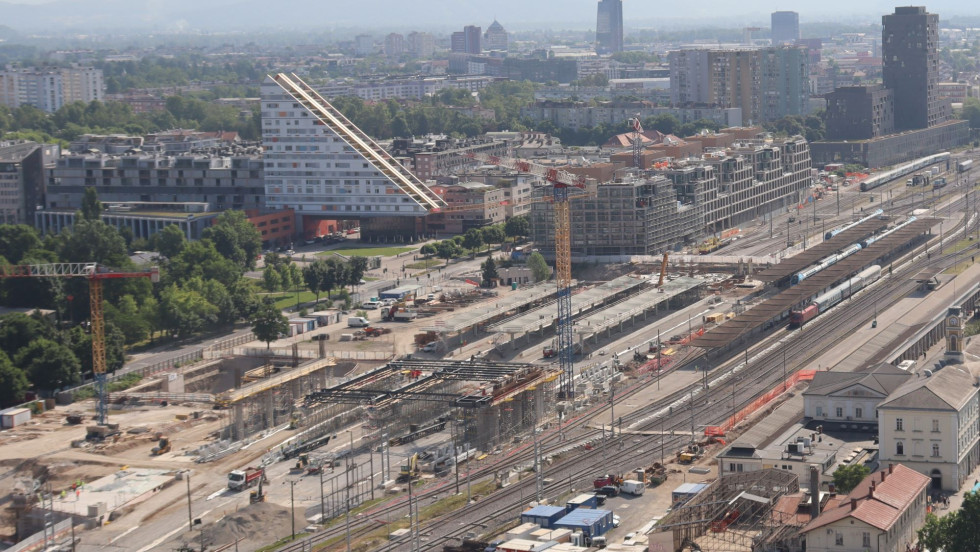EU funding for upgrading the central Ljubljana train station
“The Ljubljana railway junction is a key transport hub both for passenger and freight transport within the TEN-T network. Increasing its capacity and functionality is extremely important for Ljubljana and Slovenia. I am pleased that by amending Slovenia’s EU Cohesion Policy Programme 2021-2027, we have secured co-financing for this project, thereby relieving the burden on the state budget as the state would otherwise have had to take out a loan,” underlined Marko Koprivc, State Secretary at the Ministry of Cohesion and Regional Development.
The key objectives of the project are:
- eliminating bottlenecks by increasing the capacity of passenger tracks and transit freight tracks at the station,
- improving infrastructure interoperability in accordance with the technical requirements of the European rail system,
- establishing a modern multimodal transfer point that will increase the attractiveness of rail transport and connections with other forms of public passenger transport.
The following project works are already underway:
- construction of a new pedestrian overpass with access to the platforms,
- upgrade of the track facilities with platforms between the Šmartinska cesta road and the Dunajska cesta road buildings, and
- reconstruction of the existing underpass.
The upgrading of the rail station is part of the strategic vision of improving the rail system in Slovenia by 2030, which is in line with the Resolution on the National Programme for the Development of Transport of the Republic of Slovenia until 2030 and its amendments. The project falls under broader investments in the renovation of railway infrastructure in Slovenia, which follow European interoperability standards and increase the country’s transport capacity, contributing to a reduction in carbon footprint and improved connectivity between centres both within the country and beyond.
The Slovenian Infrastructure Agency is the beneficiary.
The total value of the contribution is €205,722,566, of which €174,864,181.10 (85%) comes from the European Union and €30,858,384 (15%) from the state budget.


